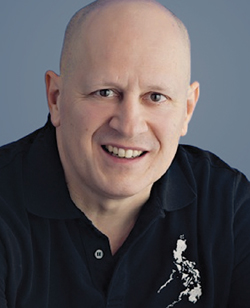Why Jesus wasn’t big on asking unbelievers to follow Him to church
Growing up, I was not too interested in church or religion. When I became a teenager, I was invited a few times by Christian classmates to attend their church youth group activities and Bible studies. I was pretty good at saying no. I was not ready to dive into their world. However, I couldn’t keep them from diving into mine.
I am forever grateful that Ron Musselman, the First Presbyterian youth pastor, did not just invite me into his church world; he jumped into my not-so-churchy world. Ron engaged my culture and my community because I was not interested in engaging his.
Jesus gave the greatest demonstration of engaging culture and community when He left the streets of gold in heaven to walk the dirt roads of the Roman Empire. Showing up was just the beginning. While here, He was the expert at engaging all types of cultures and communities that were disenfranchised by the religious elite.
Some people liked Jesus, and others hated Him. Some were attracted to Him. Others were offended by Him. Who liked being around Him? At least two types of people: children and sinners. In fact, it seems that the more youthful and the more sinful they were, the more they were attracted to Him.
One time when little children started crowding around Jesus, His followers deliberately got in the way, thinking He was an “adults only” kind of guy. Mark records that when Jesus saw this He was “indignant” with them (Mark 10:14). Warning: When church people act as if Jesus is interested only in older people, watch out, because this really ticks Him off.
Those who seemed furthest from God were also attracted to Him. Most Christians attend too many prayer meetings and Bible studies to ever meet a card-carrying, nonreligious sinner. The strange colors in their hair, the holes in their ears, the ink art on their skin and the cigarettes in their mouths are offensive to the average Christianese-speaking church person.
Jesus was able to engage His culture and relate to His generation because He was not afraid that contact with nonbelievers would tarnish His holiness. Rather, He knew His holiness would cleanse their filth.
He was relevant because He walked where they walked but did not do what they did. He spent time with drunkards but never got drunk. He ate with corrupt tax officials, but He was not corrupt. He extended compassion to prostitutes but never compromised His moral standards.
Jesus was nicknamed the “friend of sinners” because He deliberately spent time with religious outsiders. We are irrelevant to our sinful generation because we spend too much time around Christians and not enough around the unchurched. Jesus engaged their world; we invite them to church meetings.
Now, consider who did not enjoy Jesus’ company: The more religious the person, the more he hated Jesus and everything He stood for.
Youth and sinners liked Him; religious people hated Him. How opposite it is today! Who is repelled by church? Who gets dragged to church against their will? Who finds church painfully boring and irrelevant? You guessed it: sinners and young people. On the other hand, who loves church activity, church music and Christian TV? Right again: religious people.
Isn’t it strange that religious people hated Jesus, but 2,000 years later they love church? Similarly, it’s strange that youth and sinners were attracted to Jesus, but today they are repelled by church.
It is amazing what sincere friendship can accomplish. Jesus extended friendship to people who had been rejected, judged and marginalized by religious leaders and religious institutions. What do you think could happen if we would become the kind of “friend who sticks closer than a brother,” not just to church people but also to the unchurched?
Steve Murrell is the founding pastor of Victory in Manila, Philippines, and president of Every Nation ministry. He is the author of WikiChurch: Making Discipleship Engaging, Empowering & Viral (Charisma House), from which this article is adapted.
Get Spirit-filled content delivered right to your inbox! Click here to subscribe to our newsletter.
Dr. Mark Rutland's
National Institute of Christian Leadership (NICL)
The NICL is one of the top leadership training programs in the U.S. taught by Dr. Mark Rutland. If you're the type of leader that likes to have total control over every aspect of your ministry and your future success, the NICL is right for you!
FREE NICL MINI-COURSE - Enroll for 3-hours of training from Dr. Rutland's full leadership course. Experience the NICL and decide if this training is right for you and your team.
Do you feel stuck? Do you feel like you’re not growing? Do you need help from an expert in leadership? There is no other leadership training like the NICL. Gain the leadership skills and confidence you need to lead your church, business or ministry. Get ready to accomplish all of your God-given dreams. CLICK HERE for NICL training dates and details.The NICL Online is an option for any leader with time or schedule constraints. It's also for leaders who want to expedite their training to receive advanced standing for Master Level credit hours. Work through Dr. Rutland's full training from the comfort of your home or ministry at your pace. Learn more about NICL Online. Learn more about NICL Online.


